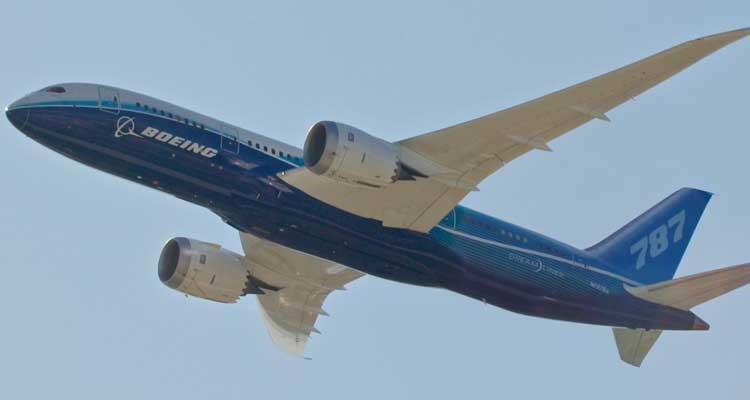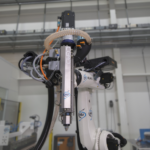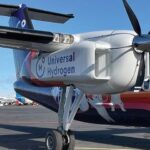The Universities of Sheffield, Cambridge and University College London are the first to carry out a comprehensive life cycle assessment (LCA) of a composite plane, such as the Boeing Dreamliner 787 or Airbus 350, and extrapolate the results to the global fleet. The LCA results show that a global fleet of composite planes could reduce carbon emissions by up to 15 percent, but lighter planes alone will not enable the aviation industry to meet its emissions targets.
The LCA covers manufacturing, use and disposal using publicly available information on the Boeing Dreamliner 787 fuselage and from the supply chain, such as the energy usage of the robots that construct the planes. The study compares the results to the traditional and heavier aluminum planes. Emissions during manufacturing of composite planes are more than double those of aluminum planes. However, because the lighter aircrafts use significantly less fuel, these increased emissions are offset after just a few international flights. Over its lifetime, a composite plane creates up to 20 percent fewer CO2 emissions than its aluminum equivalent.
The researchers fed the data from the LCA into a wider transport model to gauge the impact on CO2 emissions as composite planes are introduced into the global fleet over the next 25 years, taking into account other factors including population, economic prosperity, oil prices and speed of adoption of the new technology. The study estimated that by 2050, composite planes could reduce emissions from the global fleet by 14-15 percent relative to a fleet that maintains its existing aluminum-based configuration.
“This study shows that the fuel consumption savings with composites far outweigh the increased environmental impact from [manufacturing],” says Alma Hodzic, professor in advanced materials technologies at the University of Sheffield. “Despite ongoing debates within the industry, the environmental and financial savings from composites mean that these materials offer a much better solution.”
Fonte: Universities of Sheffield












